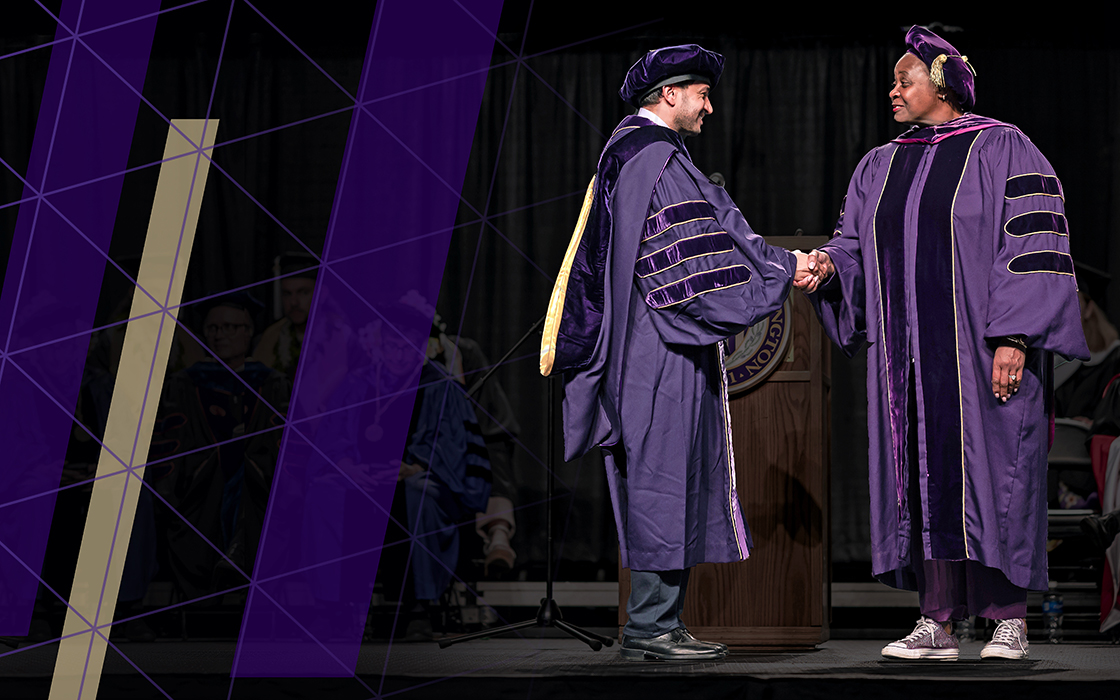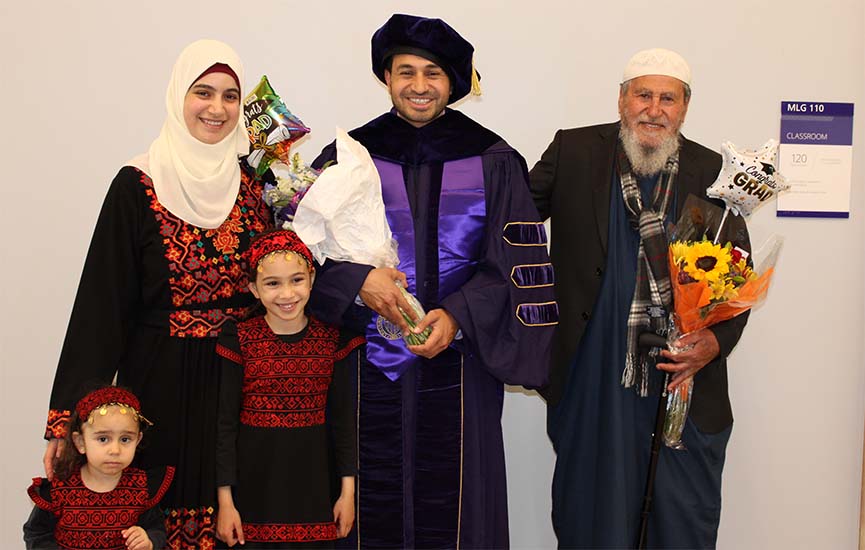
UW Tacoma Chancellor Sheila Edwards Lange (right) shakes hands with Abdulrahman Salama on the stage of the Tacoma Dome during the 2023 UW Tacoma Commencement. Salama is one of the first two students to graduate from the School of Engineering & Technology's new Ph.D. program.
A Ph.D. for Tacoma
June 29, 2023
With its first cohort of students, UW Tacoma’s Ph.D. in computer science is already making a big impact on students, research and the South Sound community.
Celebrating the Milestone
The first two students to complete their Ph.D.s with the School of Engineering & Technology may defend their dissertations as early as this summer. Abdulrahman Salama’s work, supervised by Dr. Mohamed Ali, uses neural networks to identify inconsistencies in commercial mapping services like Google Maps, Bing Maps and OpenStreetMap. Adel Sabour, also supervised by Dr. Ali, seeks to bring Natural Language Processing systems, heretofore developed mainly using the English language, to the Arabic language.

Written by John Burkhardt
Feature image by Jill Danseco



